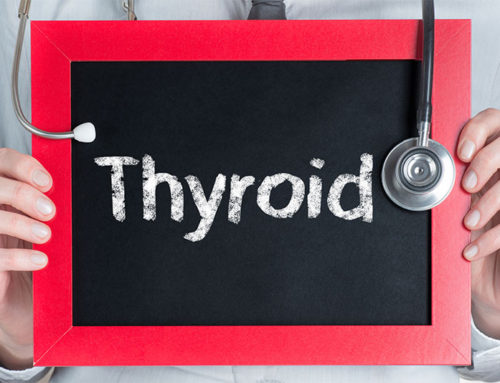We Americans aren’t fond of complexity and nuance. Maybe it’s the pace of our society, the influence of the “fast cut” or the speed of our Blackberries that has reprogrammed our brains and shortened our attention spans. Who knows?
All I know is this: when it comes to nutrition information, people want it short, fast, and easy to understand.
Ah, were it that simple.
This desire for quick, easy answers is especially prevalent in the low-carb world, which has been a bit quick to adopt the notion that losing weight is simply a matter of counting carbs.
As H. L. Mencken once said, “For every complex problem there is a simple solution. And it is almost always wrong.”
Keep reading…
Shocking Video Exposes Ground-Breaking New
Food and Vitamin Cures…
Pioneering M.D. shares natural healing tips such as:
- a “good” sugar that can decrease tumor size by 50%
- a vegetable extract that has been shown to wipe out nearly 50% of female cancers
- a special substance that can help restore lost vision, reverse memory loss and other diseases of aging.
Read more about these shocking new food and vitamin cures here »
As those who read my book, “Living Low Carb: Controlled Carbohydrate Eating for Long-Term Weight Loss” know, from the beginning of the twentieth century the playbook for weight loss consisted of one simple strategy: reduce calories.
Enter Robert Atkins, who made a generation of frustrated dieters sit up and take notice. He maintained that carbohydrate-laden foods trigger an accelerated release of insulin, which in turn encourages fat storage, while limiting fat burning.
According to Atkins, monitoring your carb intake forces your body to rely more heavily on fat as fuel; furthermore, limiting carbs cuts your appetite.
Makes sense. After all, which are you more likely to do: Eat six bowls of cereal while watching Seinfeld reruns? Or pig out on Brussels sprouts and steak?
Atkins told us to not count calories (at least at first) and focus instead on the source of those calories. Millions of dieters found they could eat more food than their previous Spartan low-fat diets had allowed, and could still lose weight.
Ah, weight-loss nirvana. So far, so good.
This notion was given some credence when scientific studies started backing it up. For example, one important study placed obese teenage boys on one of two diets: either a conventional low-fat, calorie-controlled diet or the Atkins induction phase, in which carbs are limited to 20 grams (but you can eat all the fat and protein you like).
The low-fat group ate about 1,100 calories a day while the Atkins group consumed about 1,800.
And the Atkins group lost more weight.
Clearly, weight loss is about more than just calories.
But the whole thing went south when people began assuming that because calories aren’t the whole picture, calories don’t count at all.
One of the best studies to demonstrate that both carbohydrates and calories matter was a study conducted by Dr. Penelope Green of Harvard University. She put one group of people on a 1,500 calorie-per-day low-fat regimen and a second group of people on a low-carb program of 1800 calories.
Group Two- the low-carb group consuming 1800 calories- lost a bit more weight than Group One, the low-fat group consuming only 1500 calories.
But here’s where it gets interesting….
30 Days to Reverse Your Diabetes Naturally?
Controversial new method claims:
- it’s 2X as effective as the leading type 2 drug and…
- can get patients off their medications and reverse type 2 diabetes in 30 days but…
- without taking expensive drugs or sticking to an impossible diet.
She added a third group to the study. This group combined the low-carb fare of group two with the lower-calorie intake (1500 calories) of group one.
And this group- low-carb/ lower calorie—lost the most weight of all.
The point is this: you can’t completely ignore calories. Eat too many of them and you will stall or prevent weight loss on any diet. It’s that simple. I’ve seen folks eat two whole chickens for dinner and then wonder what went wrong, because, after all, it was a “low-carb dinner.”
Sure, your low-carb plan will allow a bit more wiggle room than the standard low-fat diet, and your appetite may be naturally curbed anyway, but don’t think you can disregard quantity altogether just because your carb count is low.
Sorry. Don’t shoot the messenger. I wish it were different.
Because we were so delighted by the revelation that calorie counting wasn’t the only answer, we adopted the misconception that calories don’t matter at all.
They do.
To get the best out of your controlled-carbohydrate eating plan, you need to pay attention to both carbs and calories.
Adjust your calorie intake to the amount suited for your particular metabolism, limit your carbs so you don’t send your hormones (particularly insulin) into an orgy of fat storage, increase your fiber, and you’ve got the perfect nutritional trifecta.
Size—at least when it comes to portions- really does matter.














My wife and I have been following the Dr Pierre Dukan diet
with great success. I personally have reduced in size by 35 lbs and my wife has similar great results. I was concerned about the chemistry but all my results are now normal and cholesterol is 130. Anyway, at 75 I now feel better with greater energy. The good thing is with lean meats and vegetables
It easy to follow and you are not hungry or yearning for food. Also it teaches you to watch the size helpings.
Jonny,
Thorough, easy to follow explanation of the “calories count but aren’t the only thing to count” theory. You asked for success stories so here’s mine. Since you turned me on to so much science over the years proving that the low fat/higher carb diets are just plain wrong for weight loss I have lost 8 pounds and kept it off for about 3 years. And I’m in my fifties! Who says you have to get fat at midlife? You will if you don’t change what you are doing but midlife is not a fat sentence when the truth is easy to find–such as right here. Thanks JB!
Hi Jonny,
Love your books, enjoy the emails. Here’s a suggestion: We are all really busy and often need info short and to the point. How about presenting the material with a short intro, bullet the main points, and expand for those with time to get through the whole thing; treat it like a docs abstract. And definitely, if you’re going to offer a video, tell how long it’s going to be! I get really frustrated when I begin a video and realize the point isn’t coming any time soon AND I don’t know how long it’s going to take. Case in point: Dr. Jonathan Wright and Sugar X. I don’t like hype, want a scientific presentation, and want to know my time investment so I know if I can listen now or need to wait for a more convenient time. So many people I know dismiss Joseph Mercola because his site is all hype and dragging out the article or video.
Hi Dr Jonny,
I enjoy your blog and videos so thanks for the useful information. I’ve been playing around with my diet for a while and am currently eating the low carb way. To be honest I went through 5 months of eating no fruits at all (except the juice of one lemon per day) and am now just introducing about 40ml of blueberries in my post training protein shake. However I have to comment that I feel great if I’m not exercising (1 day a week) but when I exercise I find it much harder to recover and feel more fatigued especially on days I do longer cardio sessions like today (I ran 14 km and swam 4km). I seem to hit the wall. I started putting also about 1/3 cup of cooked millet, quinoa or buckwheat in my green smoothie (which previously had very little carbs but mostly a romaine lettuce, protein powders, tocotrienol, aloe Vera gel, Amla plus powder (with spirulina), cinnamon, stevia, digestive enzyme capsule and a few supplements like vitamin D and Green tea extract. I have been told I’m a mixed metaboliser (i.e. not someone who should be on a full on carb diet nor full on Protein/fat diet). Do you think it’ s just a matter of time? I do have far fewer cravings eating like this and think I’ve overdone the carbs big time in the past.
Anyway, I’ll keep trying to find the best way for me. Thanks again
Anne
I have to agree when I first did the low carb diet when I was in my 20’s I lost 60 lbs fast almost 3 lbs a day. Now that I am in my 30’s I went back to the diet being type 2 diabetic now and although my blood sugar normalized without medicine, my weight slowed in it’s burn. When I restricted my calories more it started to come off faster.
Great article!
Good article Jonny. I have recently dropped 2 kilos by cutting carbs and calories. Before that I just couldn’t shift it. I am 63 and as you get older it’s a lot harder to lose weight (not sure why). Eating less is only difficult for a few days, then you get used to it.
Wendy
Sooo true! I lost over 130 pounds about 6 years ago on a Southbeach type diet. The 100 is gone, but I keep playing with the 30. Why? I either eat too many carbs or when I don’t, I eat too many calories. I do best when I watch both. Thanks for the reminder!
What percentage of fat calories did the low fat group comsume? I’m fairly confident that a fat percentage of 10% or less would prevail over any version of a low carb diet.
Hi there,I read your new stuff named “Size Matters: The Truth About Carbs vs. Calories – Jonny Bowden” regularly.Your humoristic style is witty, keep up the good work! And you can look our website about اغاني.